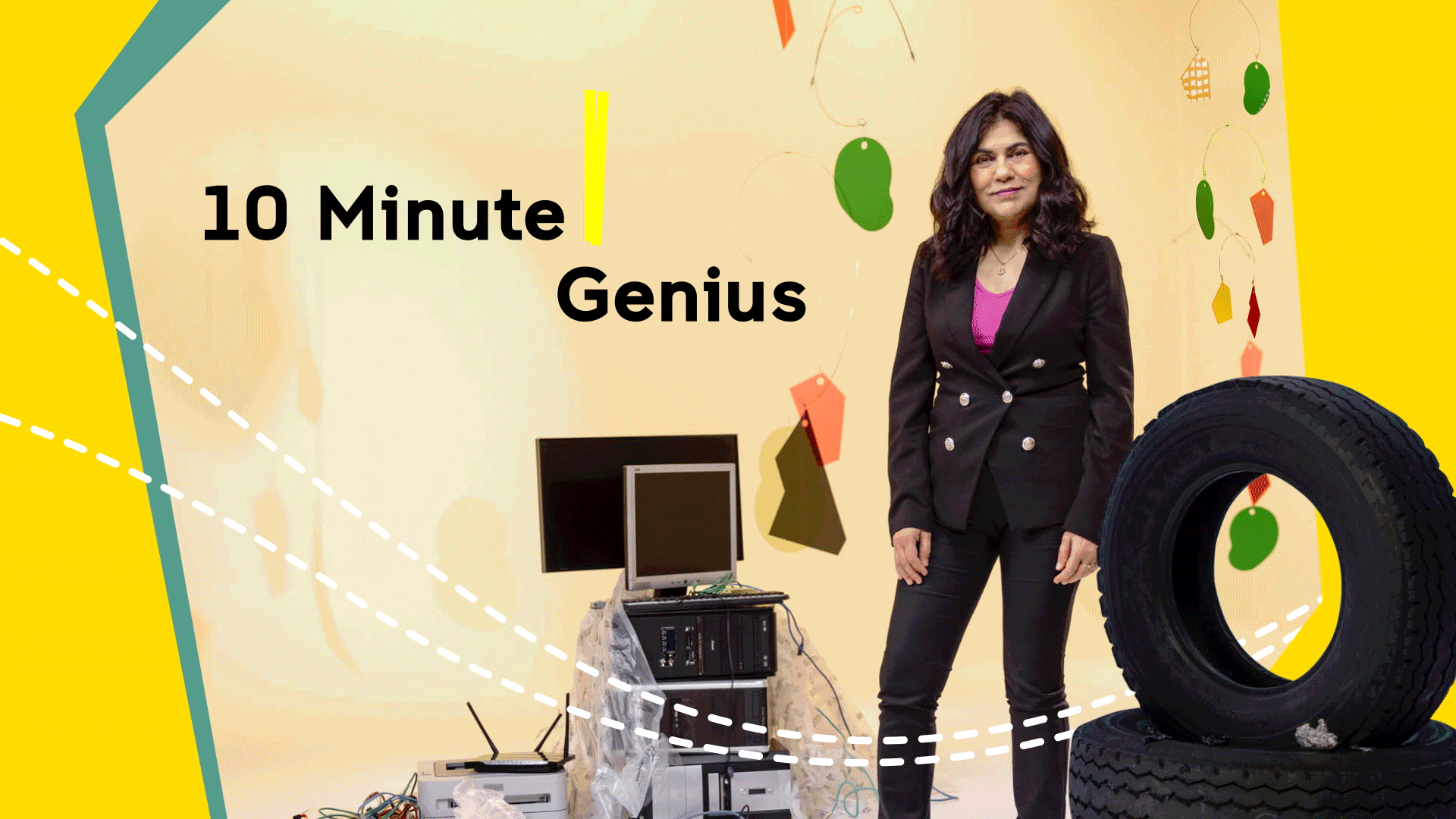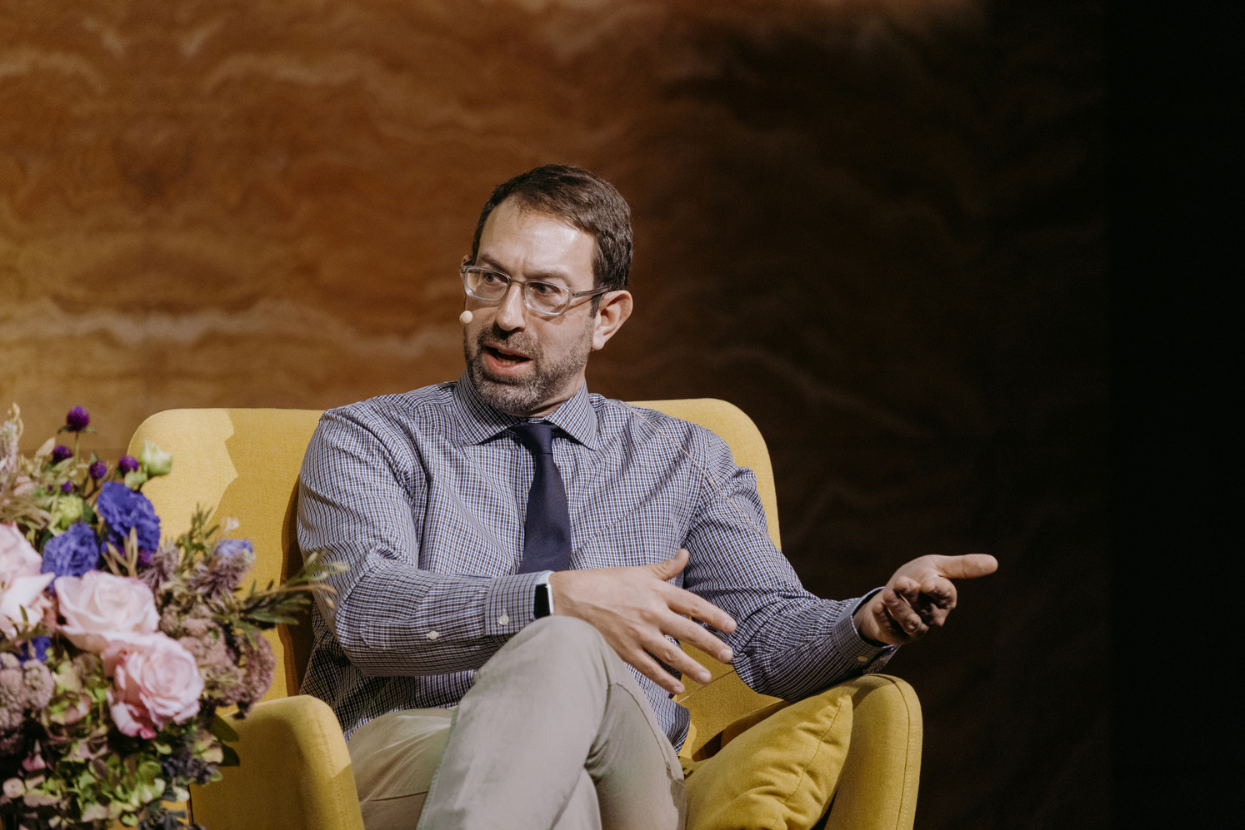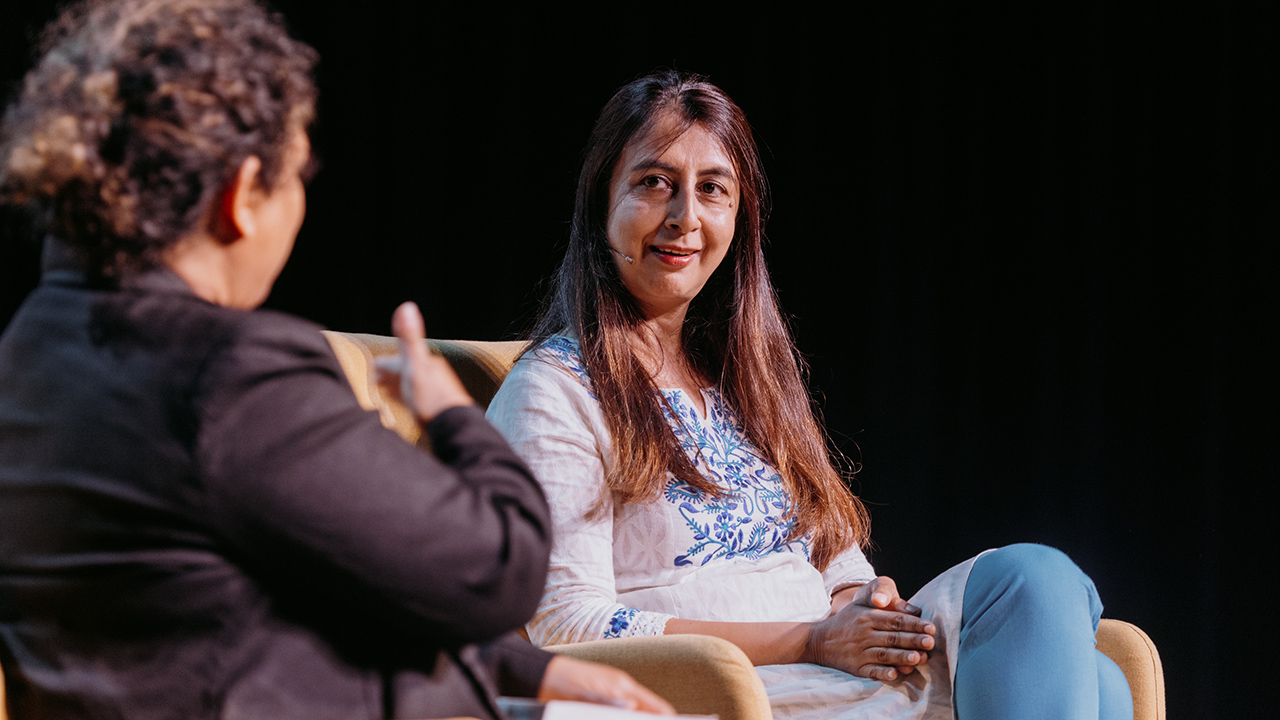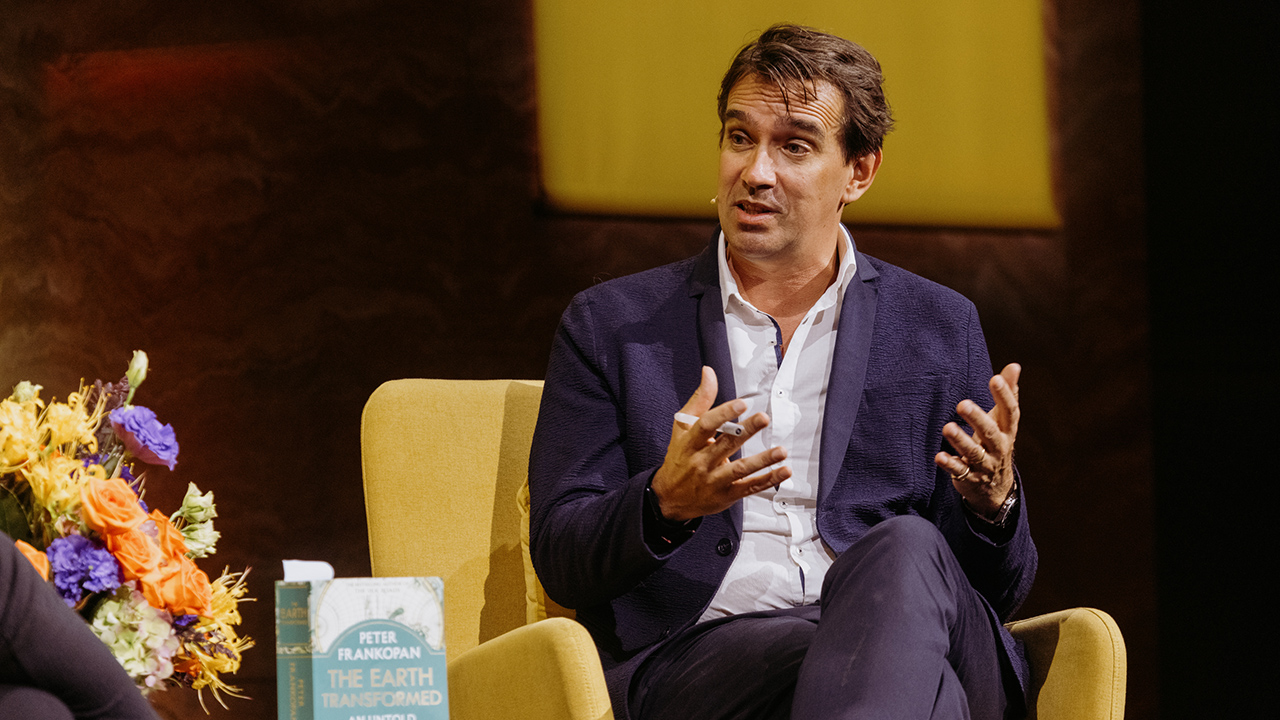Veena Sahajwalla | There's no such thing as waste
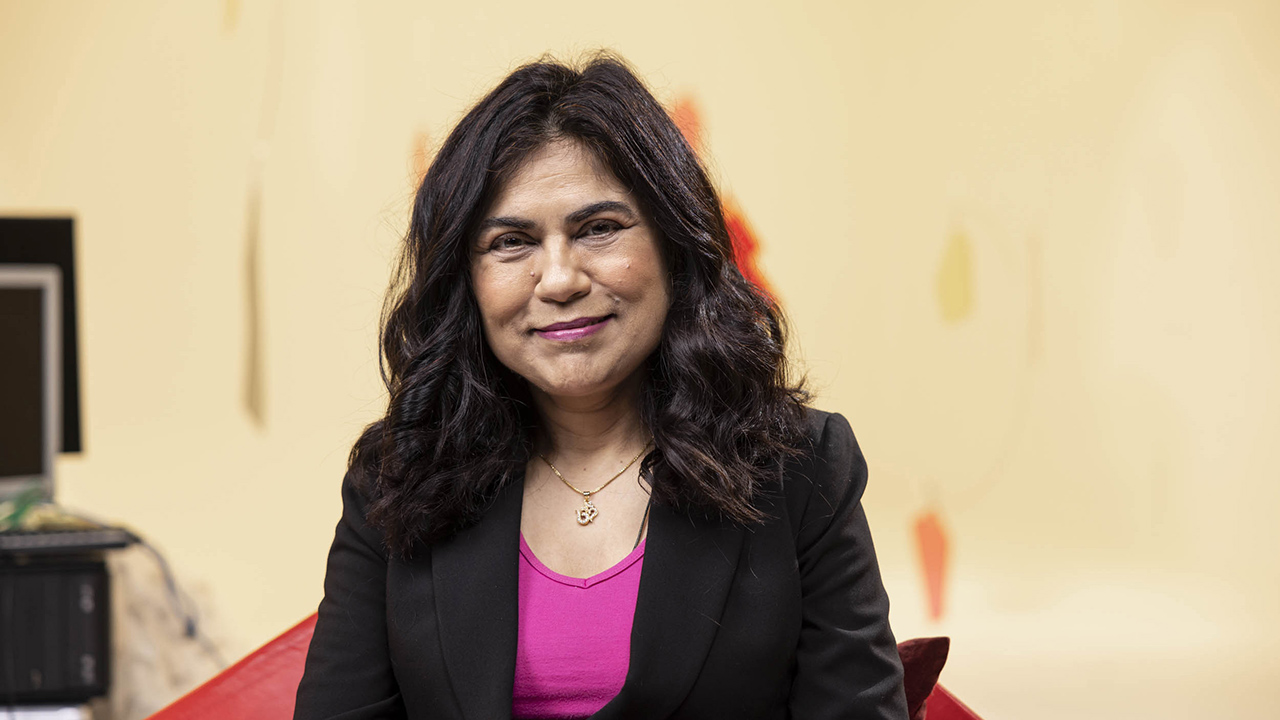
If we reframe what we think of as waste, we can unlock the really useful materials contained within it to create new things.
Waste has a bad reputation. Rubbish, unwanted, disgusting, gross. But when we hold our noses as we scuttle past an overflowing bin in the street, we are passing by a world of recycling opportunities. In nature there is no such thing as garbage, it's a series of complex circular eco systems where everything has a purpose, and nothing is left to waste - so why should our lives be any different? According to material scientists, it doesn’t have to be. Rather than bury our trash or toss it in the bin, we should be excited by the idea of creating something entirely new - the idea of a used can, a discarded tyre or a smashed iPhone is a gateway to a brave new world of recycled products, like components for 3D printers, green ceramics and home furnishings. So, think twice next time you discard your plastic water bottle because it may actually hold the secrets to unlocking a greener type of steel.
In the time it takes to melt an aluminium can, material scientist and engineer Veena Sahajwalla explains why not everything belongs in the bin.
To learn more about the work Veena's work, head to the Centre for Sustainable Materials and Research & Technology (SMaRT@UNSW)'s website. SMaRT is the home of microrecycling science, MICROfactorie technologies, the NESP Sustainable Communities and Waste Hub and the ARC Microrecycling Research Hub.
Transcript
UNSW Centre for Ideas: Welcome to the UNSW Centre for Ideas podcast – a place to hear ideas from the world’s leading thinkers and UNSW Sydney’s brightest minds. The talk you are about to hear forms part of the 10 Minute Genius series, a curated collection of UNSW’s thinkers, dreamers and envelope pushers helping you make some sense of the relentless information vortex in which we live. In under 10 minutes, or the time it takes to melt an aluminium can, material scientist and engineer Veena Sahajwalla explains why not everything belongs in the bin.
Veena Sahajwalla: The truth is, there's no such thing as waste. What do you see when you look at this – rubbish, something familiar, unwanted, disgusting even? You might see waste, but what I see are opportunities, ones that are not to be missed.
I'm Veena Sahajwalla. I'm a material scientist, an engineer, and an inventor. And I'm here to tell you why our mindset around waste is that it is really a resource and not everything belongs in the bin. It's kind of common sense, and I'll fill you in, in under 10 minutes.
As humans, we need to value all of our materials and resources. In nature, there are food cycles and nutrient cycles. Dead creatures, their poo, and their urine become food for fungi and soil microbes. The soil enriches plants, and plants are eaten by herbivores, and so the cycle continues. Nothing really goes to waste. Everything has a use and value in the circle of life.
But as humans, we've decided that things that are no longer immediately useful to us are useless or valueless, and so we consider this waste. You know, we throw it away, out of sight and out of mind. We bury much of our waste within the earth where it can become toxic and can cause emissions, never to be available again as a resource to harness the useful and valuable materials contained within it.
For instance, we've created products from fossil fuels like plastics that take a long, long time to break down. Meanwhile, we put huge demand on our finite resources on materials that we don't have an endless supply of. But this is where innovative recycling comes in. We all know that aluminium cans can be melted and made into new cans again, instead of relying on mining. But what about some of the trickier materials, the things that we throw away that contain lots of different kinds of hard-to-recycle resources? For me, those are the things that really get me excited. This is where I see a world of opportunity. If we reframe what we think of as waste, as materials that we can really unlock the useful materials contained within it to create new things, to create new products.
I look at, for example, old tires and see the potential to make green steel – that is a lot more sustainable. I look at plastics in our unwanted electronics and see green filaments that can then be used in 3D printing. I look at waste glass and old clothing that might have otherwise ended up in landfill and see tremendous opportunity to design new green ceramic tiles. And so for me, material science and engineering ais about looking at these things as valuable resources and valuable materials that can be used over and over again.
So I'd like to think that there is no such thing as waste, only wasted opportunity. That is the mindset that led me and my team at the UNSW Smart Centre to create micro factory technologies. These series of modular machines allow different types of waste to be broken down and to be reformed into new products and materials for manufacturing and remanufacturing, over and over again.
Did you know that our e-waste – our phones, our computers, appliances, batteries – contain valuable materials, but much of this is simply seen as waste? Almost all the materials used in our electronic devices are finite and extremely valuable, but when we don't want these devices anymore, we simply throw them away as waste.
In the past five years, the volume of discarded smartphones, laptops, printers, and many other electronic devices, reaching the end of their lives, jumped up by 21%. By creating micro factories that process e-waste, we can really harness these materials that are present in our e-waste, like our plastics and metals, and really use those materials, again and again. This helps create a circular economy where old products and waste become part of a cycle, much more like natural cycles.
Rather than ending up in landfill or being just shipped away overseas for processing in ways that can harm human and environmental health, I am constantly looking at materials that we use and the things that end up in our bins, and thinking about what they're made of and how we can reuse those materials, those products, letting my imagination run wild with all kinds of ideas about what these products could be recycled and remanufactured into. And it's so often this is that first step in that innovation journey that leads to so many inventions.
This sort of thinking is absolutely crucial to how we can tackle sustainability challenges that we face on this planet, and we can only meet those challenges if we can stop seeing waste and start seeing opportunity.
UNSW Centre for Ideas: Thanks for listening. For more information visit centreforideas.com and don't forget to subscribe wherever you get your podcasts.
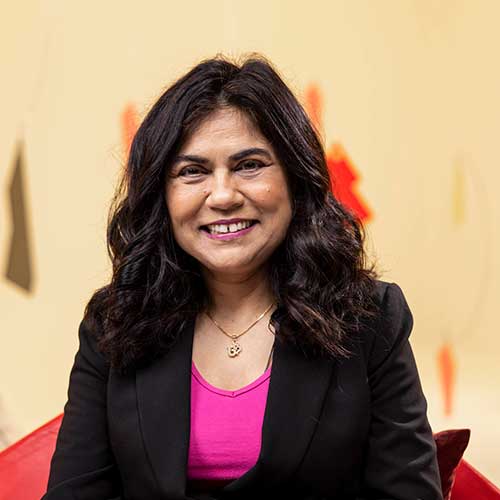
Veena Sahajwalla
As a leading expert in the field of recycling science, and founding Director of the Centre for Sustainable Materials Research & Technology at UNSW Sydney, Professor Veena Sahajwalla is producing a new generation of green materials, products and resources made entirely, or primarily, from waste. Veena also heads the ARC Microrecycling Research Hub – a program of cutting-edge research and development aimed to transform Australia’s waste and resource recovery industry by equipping it with advanced manufacturing capability, focusing on small-scale manufacturing of valuable materials recovered and reformed from complex battery and consumer wastes. Veena has been extensively recognised for the innovation and significance of her work, including via election to be a Fellow of the esteemed Australian Academy of Science.

